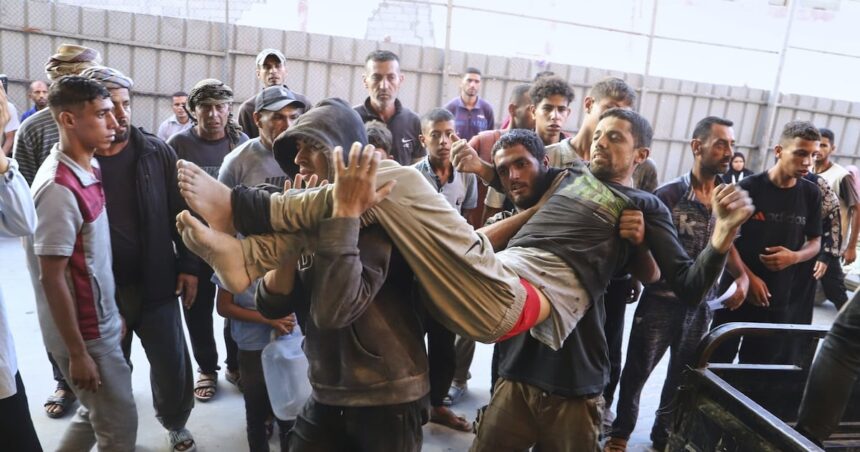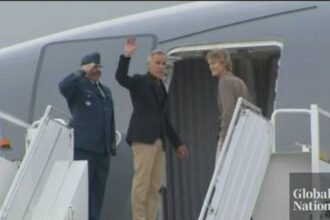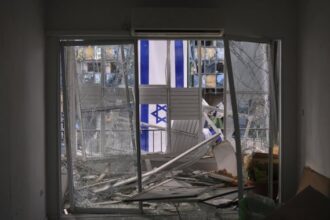The dawn air was filled with desperation in northern Gaza on Thursday as thousands gathered to receive desperately needed food aid. Within moments, what began as a mission of survival transformed into tragedy when Israeli airstrikes reportedly killed at least 85 Palestinians and wounded hundreds more, according to Palestinian health officials.
The catastrophic incident unfolded near Gaza City, where aid trucks had arrived in an area already devastated by months of conflict. Eyewitnesses described chaotic scenes as hungry residents rushed toward the convoy before explosions tore through the crowd.
“People were simply trying to feed their families,” said Mohammed Saleh, a local medical worker who assisted in the aftermath. “One moment they were reaching for bread, the next they were scattered on the ground.”
Israeli military officials initially claimed they targeted Hamas militants who had approached the aid convoy, but United Nations representatives on the ground disputed this account, stating that most victims appeared to be civilians waiting for food distribution.
The incident comes as Israel expanded evacuation orders in central Gaza, forcing thousands more Palestinians to flee their homes in what humanitarian organizations are calling an increasingly dire situation. According to the UN’s emergency relief agency, over 80% of Gaza’s 2.3 million residents have now been displaced at least once since the conflict began in October.
International pressure continues to mount for a ceasefire as diplomatic efforts intensify. U.S. Secretary of State Antony Blinken, currently on his sixth Middle East tour since the war began, expressed “deep concern” over the rising civilian casualties and called the incident “devastating and unacceptable.”
“The humanitarian situation has reached catastrophic proportions,” said World Food Programme director David Beasley. “We’re seeing unprecedented levels of hunger and desperation. Entire communities are surviving on one meal every few days.”
The Gaza Health Ministry reports that the death toll since October now exceeds 30,000, with the majority being women and children. Medical facilities continue to operate beyond capacity, with critical shortages of supplies, medication, and fuel for generators.
Meanwhile, negotiations for a hostage-prisoner exchange deal continue in Cairo, though progress remains uncertain. Hamas officials insist on a permanent ceasefire, while Israeli Prime Minister Benjamin Netanyahu has rejected these terms, stating Israel will continue operations until “all objectives are met.”
As night falls over Gaza, families search for missing loved ones while aid organizations scramble to adjust distribution plans. With each passing day, the fundamental question grows more urgent: how many more civilians must perish before diplomatic efforts yield a sustainable path to peace?

























